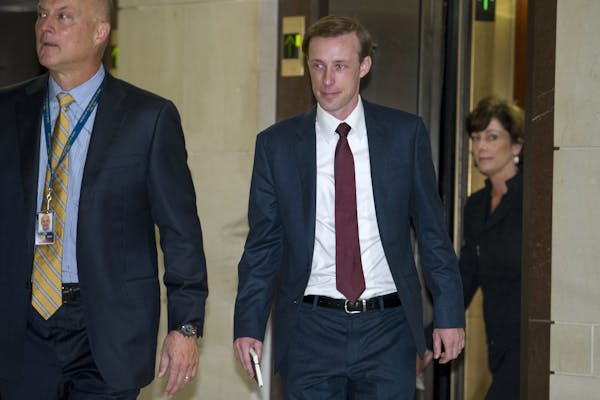Jake Sullivan doesn't see politeness as a diplomatic strategy for the United States. But that doesn't mean this Southwest High School grad won't bring a dose of Minnesota Nice to his new position as national security adviser to the next president.
A 1994 graduate of Southwest High School in Minneapolis, Sullivan was tapped last week by President-elect Joe Biden for one of the biggest jobs in his White House.
"I do hope to be as polite as possible, as a Minnesotan," Sullivan said in a virtual forum last Wednesday with University of Minnesota political scientist Larry Jacobs. They were joined by former Vice President Walter Mondale, a mentor to Sullivan with his own long history of engaging on the world stage.
Suggesting a contrast with the bellicose, America-first foreign policy style of outgoing President Donald Trump, Sullivan said that "we intend to think of politeness as a good thing. But it's not a foreign policy tool."
That was in response to a question from Jacobs about remarks last week by Sen. Marco Rubio, the Florida Republican with past presidential ambitions. He tweeted that Biden's new foreign policy team would be "polite and orderly caretakers of America's decline."
In response, Sullivan laid out the organizing principle behind the new president's national security approach: that influence abroad flows from strength at home.
"A stronger economy for working people, huge new investments in research and development, owning our future in key industries like clean energy and advanced manufacturing, making sure our democracy is robust and strong and inclusive and diverse, with institutions rooted in deep constitutional principles," Sullivan said — domestic priorities that must serve as a foundation for promotion of U.S. interests abroad.
"In so doing, we are going to be able to compete, and to out-compete, everyone," Sullivan said. "Including China."
The former vice president recalled his own efforts under President Jimmy Carter to strengthen alliances with China, what Mondale called a "high period in U.S.-China relations." The relationship has deteriorated in the decades since.
Recent history with China suggests "a real challenge on our hands," Sullivan said, noting issues of political repression and global market distortion, along with "increasingly aggressive tendencies in approach to military activities."
The plan, he said, is to "push back hard in areas where China is engaging in behaviors at odds with American interests" while also seeking out areas of common interest, like trying to reduce climate change and nuclear proliferation.
While he won't be in the job until January, Sullivan described what a typical day might look like for a national security adviser: "There's a lot of dealing with crises that come up. Things that you weren't thinking about when you woke up in the morning can consume your day — because that's what's going on in the world."
